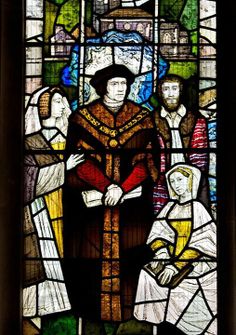
Sir Thomas More, “the man for all seasons,” was a minister to Henry VIII of England and a prolific writer and thinker. More wrote a work of fiction in 1516 in which he coined the word utopia. Literally, it meant “no place” but the word came to signify an idealized society in which government, economics, and religion all are better than what is being experienced in the present time. The term carried an optimistic view of the future. Think of the old Disney endings: “And they lived happily ever after.”
In contrast, fictional writers in recent years have opted for the term dystopia. Literally, it means “bad place” and it conveys a very pessimistic view of the future: depleted natural resources, societal chaos, and survival battles led by anti-heroes. This kind of fiction has been prevalent since the 1930’s and has shaped film making in recent years. Think of the Mad Max movies.
Will the future be good or bad? I do not know. But I choose to live in hope for the future. Biblical hope is an “earnest expectation” of receiving the promises of God. It is based on faith with a confidence in God’s word and work. This hope is fixed on the future: “an inheritance incorruptible and undefiled and that does not fade away, reserved in heaven for you.” – 1 Peter 1:4. This hope is not just future oriented. It has a here and now significance. “But if we hope for what we do not see, we eagerly wait for it with perseverance.” – Romans 8:25. Hope is what allows us to endure the difficult times, not because we are hoping to make earth a utopia, but because we are just “strangers and pilgrims” here. – Hebrews 11:13.
Not only is hope aligned with faith, but it is also allied with love. – 1 Corinthians 13:13. Love for God and love for fellow humanity should characterize our pilgrimage here on earth. God’s people have lived in tough times: Ruth in the dark days of Judges, Elijah in times of idolatry, Ezekiel and Daniel under the Babylonian captivity, the early Church under the Romans. Love for God and love for their neighbor sustained them in trials.
Rather than futilely trying to make the world a paradise or giving in to pessimism, may God’s people choose to live in hope, based on faith, and framed in love.
